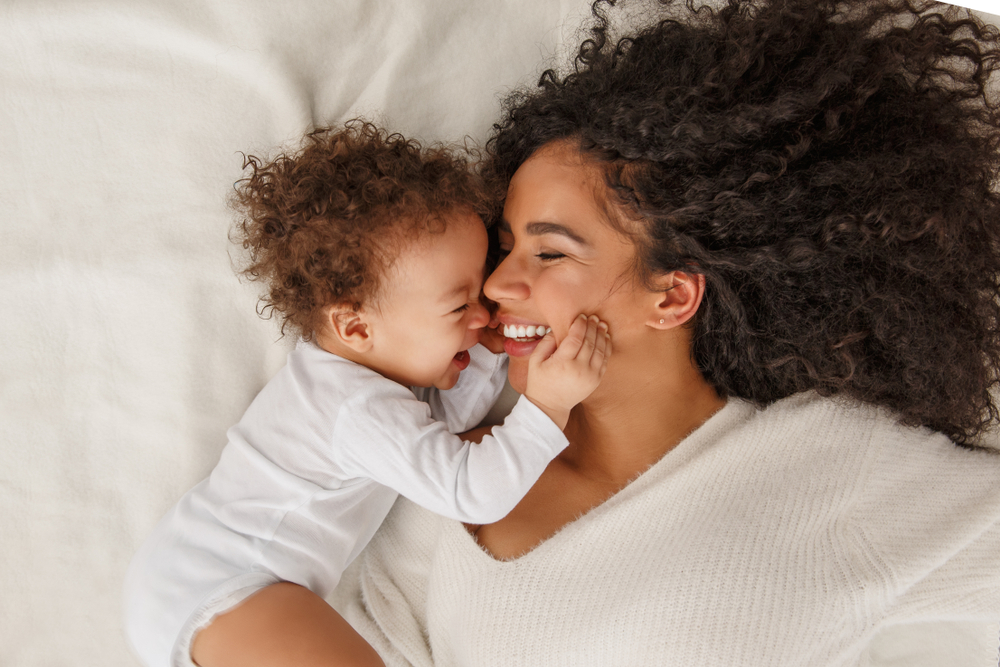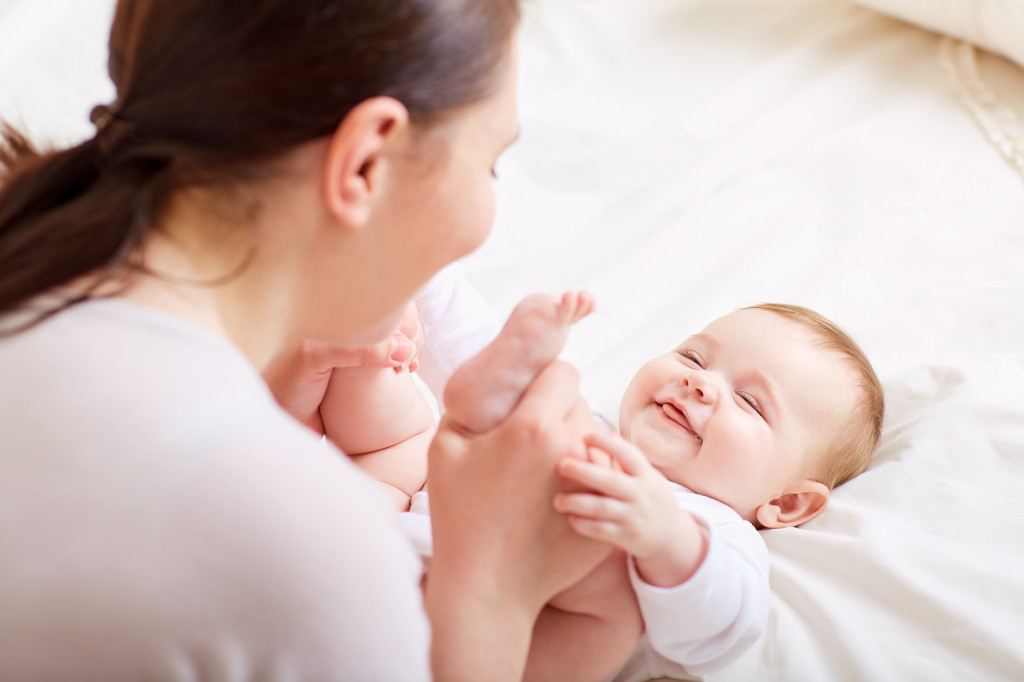For many parents, one of the most important things they want to know is when do babies smile and when do they start laughing; of course this is completely understandable as we all love it when a little one flashes their cute smile or giggles. When it comes to smiling, babies can actually smile from a fairly young age and were likely doing so in the womb. However, this is more a reflex smile rather than a smile in response to something specific.
So, let’s look at when babies smile ‘for real’.
This ‘reflex’ smile will start to disappear around the 2-month mark, which is also a similar time to when your baby will have their first smile in response to something specific, or their first ‘real’ smile. The first one can make an appearance between around 1 ½ months to 3 months. You will likely be able to differentiate between the reflex and real smile, as reflex smiles occur randomly and don’t last long whereas a real smile will occur in response to something. You will be able to tell the smile is real by the emotion in their face.
When babies first start to smile, they will react best to a combination of visual and vocal stimulation; so, singing and talking to them will help. As they get older, they will start to recognise more visual triggers and even start making noises. They’ll start with shorter noises and giggles. At around 5 months old you’ll find your baby may be doing full loud laughs.
Benefits of Smiling
Your baby smiling is a good sign that they are developing, as when your baby smiles it shows their vision and ability to recognise stimuli is improving. The disappearance of the reflex smile also signifies that their brain and nervous system function is developing enough to control this reflex and they are becoming more aware.
Making your Baby Smile
Of course, as parents, all we want to see is our little one’s happy and smiling. If you’re looking for ways to coax that first smile out of your baby or just encourage them to smile more, there are a couple of things to keep in mind. The best way to encourage your little one to smile is to just continue being very vocal with them and making sure you’re having a lot of eye contact. Things such as being silly; making noises and pulling faces can really help stimulate them. However, if they seem disinterested make sure not to force it, it might be getting too much for them.
Don’t become too concerned if you feel your baby isn’t smiling as soon as you would like, they all develop at their own pace. If you are concerned that by 3 months your baby isn’t smiling, you can mention it to your doctor. But it shouldn’t be a cause for concern.


